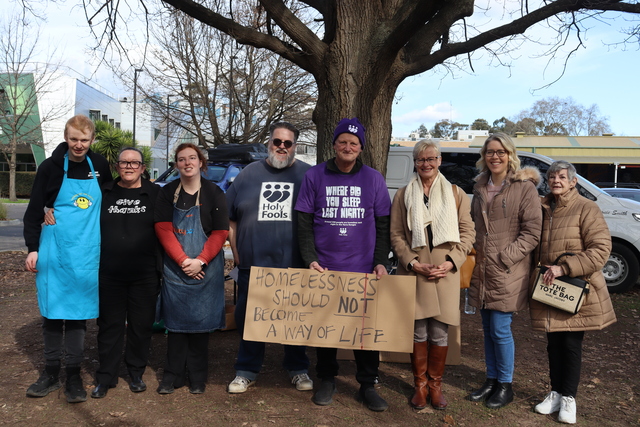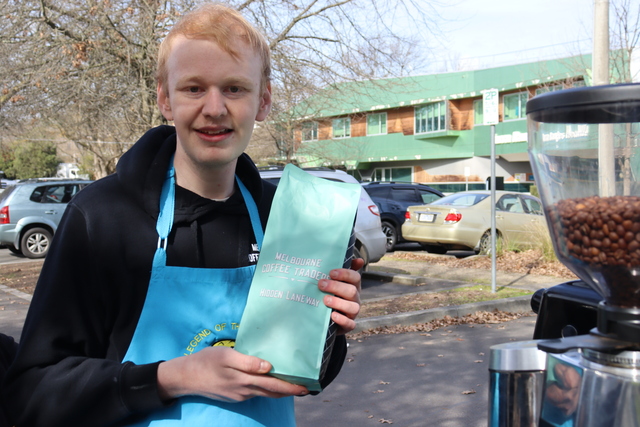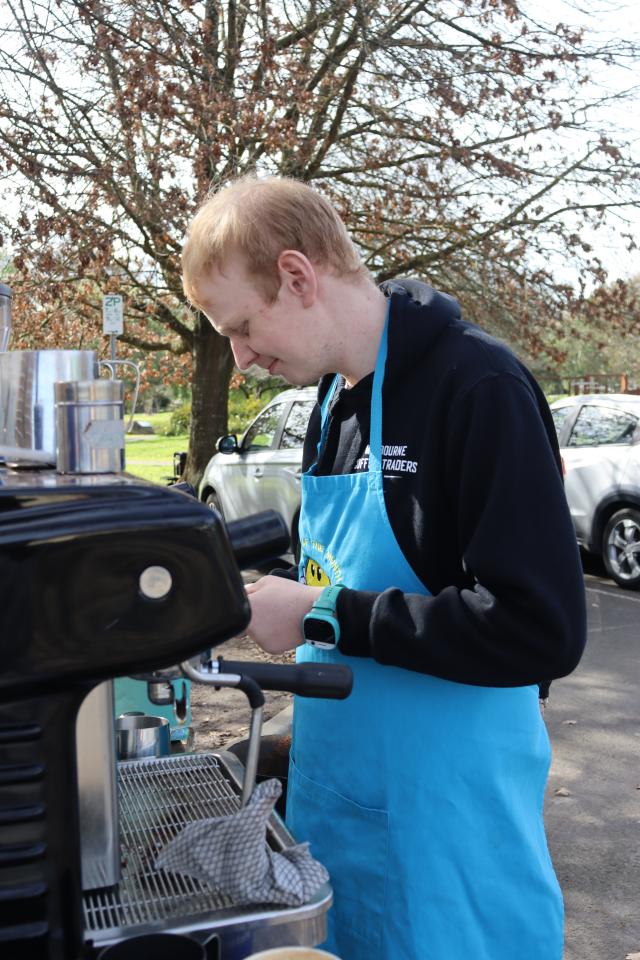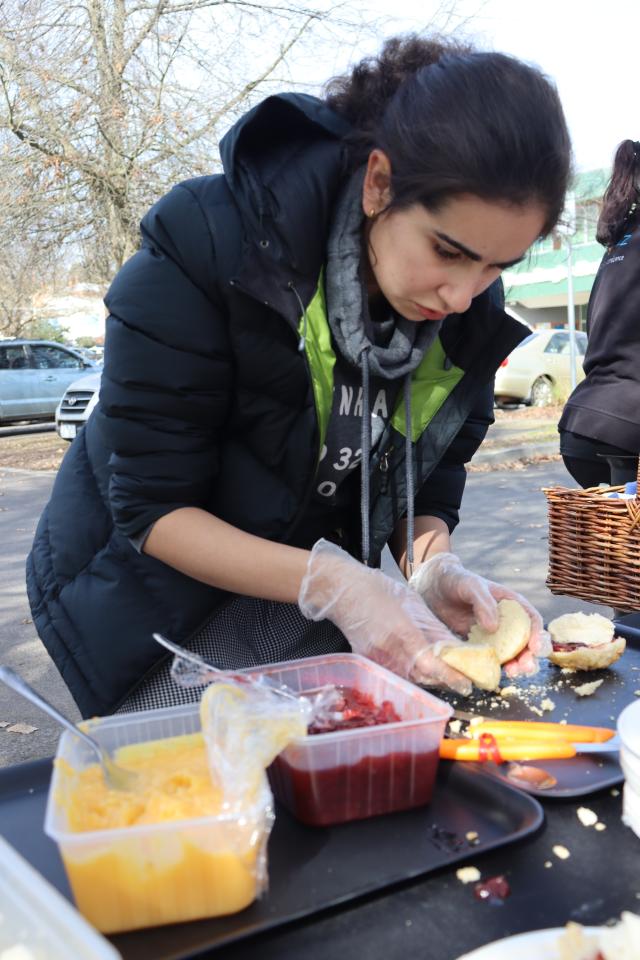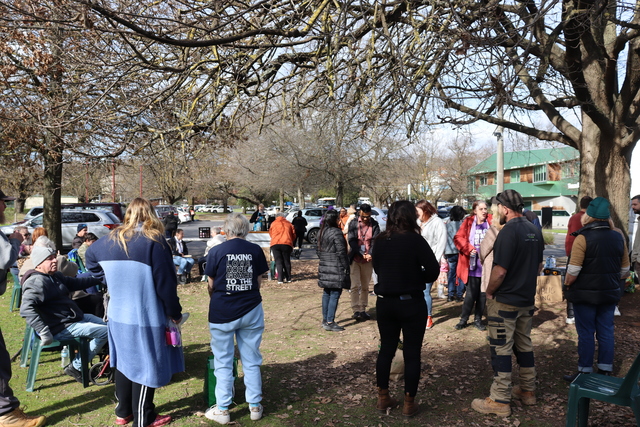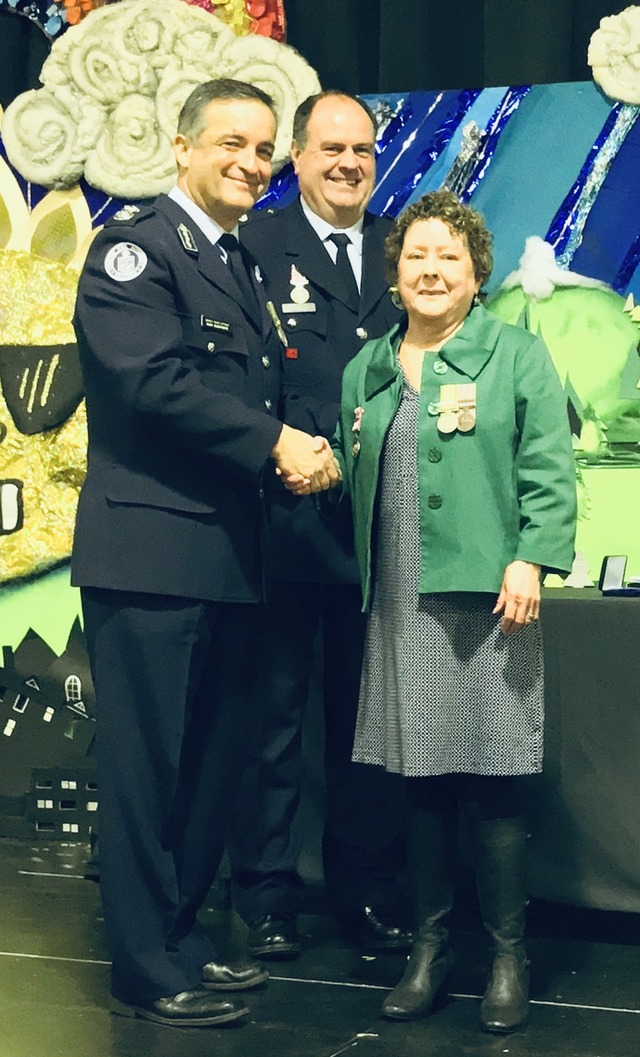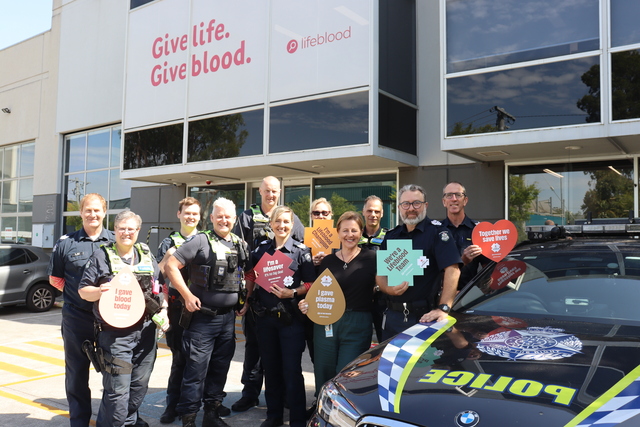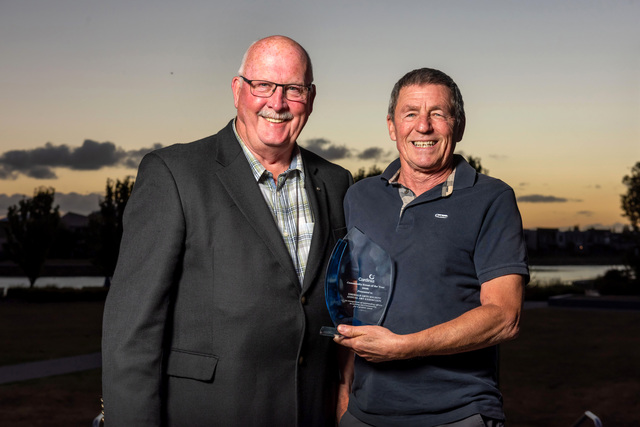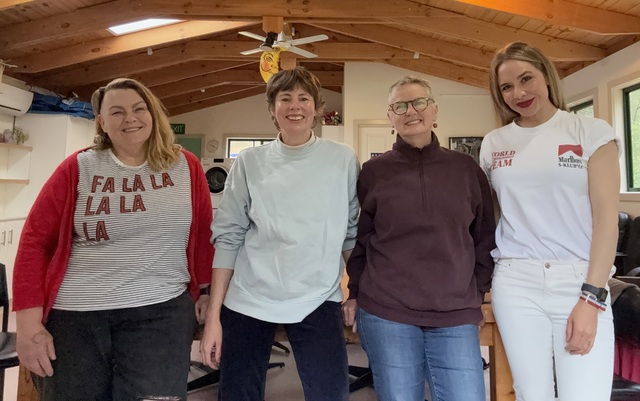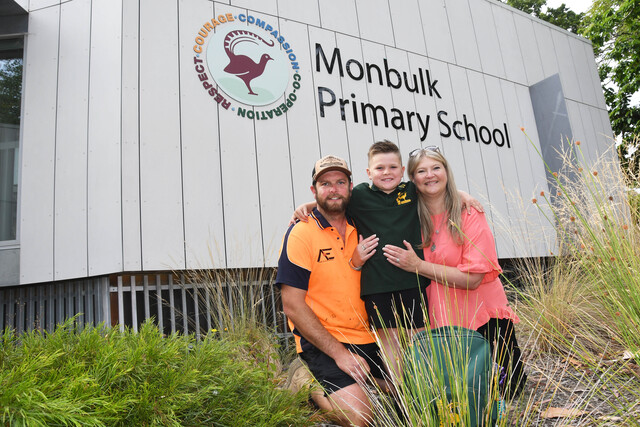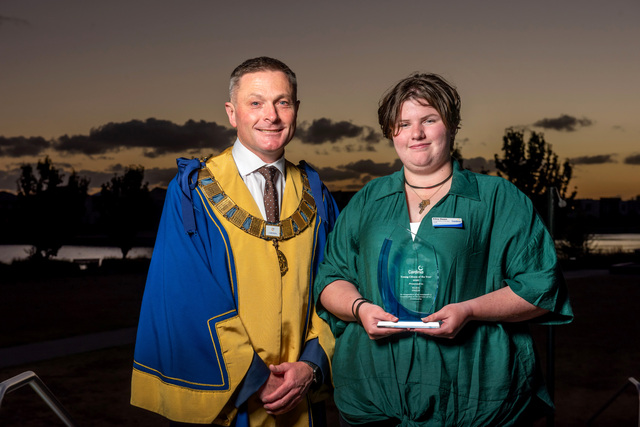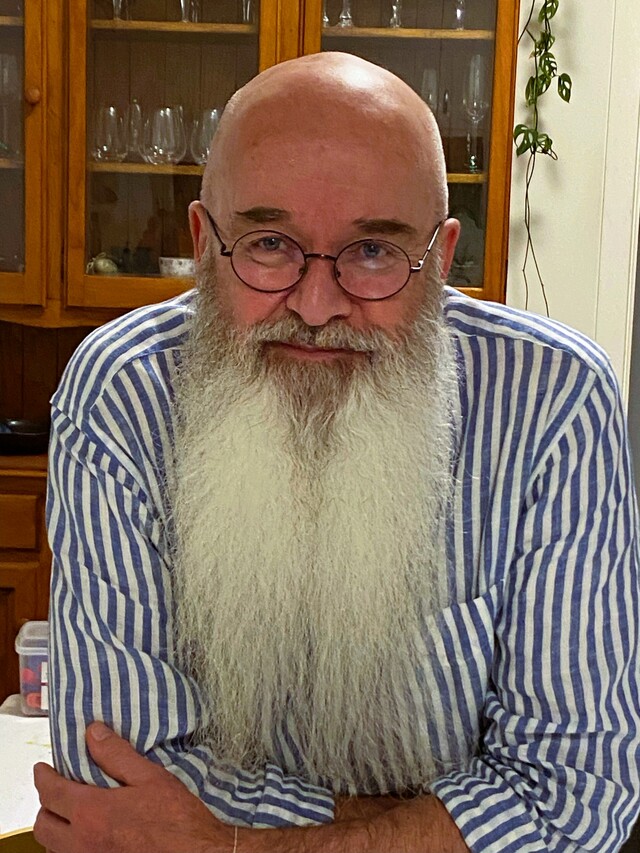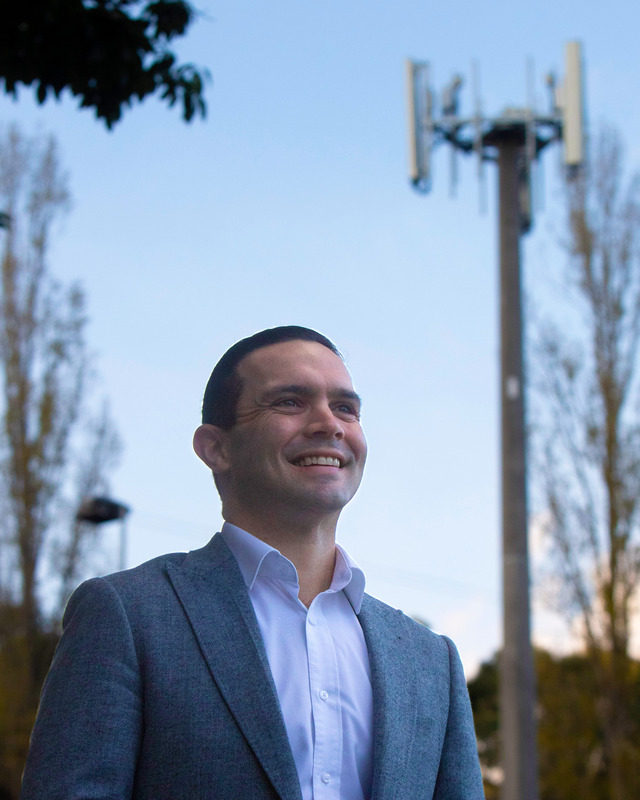With the likelihood of homelessness increasing, services from across the Yarra Ranges wanted to commemorate the dedicated awareness week with positivity.
Each year during the first week of August, support services from across the region join together to remember, reflect and connect with or about the many people who have fallen into homelessness.
Under the warm winter sun on Wednesday 7 August, lunch was served to a gathered group of those in and around homelessness at Melba Park in Lilydale.
As the regular meeting spot of Holy Fools’ Street Angels lunch it seemed only right to make this the location of the National Homelessness Week lunch.
Founder and chief executive officer of the outreach organisation, Neal Taylor, said unfortunately despite some steps forward, the situation is worsening.
“The issue is getting worse, and we’re starting to see more and more families, not necessarily homeless but at very strong risk of homelessness, battling exorbitant rentals or high mortgages,” he said.
“Often there’s loss of income with a parent, one of the primary parents may be sick or lose their job.”
Anchor chief executive officer Heidi Tucker said this was exactly the scenario and demographic presenting more and more often to the organisation’s homelessness case workers.
“We’re seeing people now coming in who absolutely can’t afford their rent and looking at homelessness who work. So we’re actually now having a lot of contact with what we would call the working poor in this area,” she said.
“The Yarra Ranges, historically, has had reasonable rents, cheaper than further into Melbourne but that is not the case anymore.
“Not only that, landlords are also selling up with the interest rate rises so that perfect storm for people who are renting means that rents are going up but also properties are getting scarcer.”
Another cohort of the population representing the increase in homelessness, Mr Taylor said, was older men, particularly “we’re seeing a lot more men in cars”.
One man, who Mr Taylor estimates was in 70s, was sleeping in his car during the weeks when temperatures dropped below zero. He has since found nightly accommodation at the Winter Shelter.
Ms Tucker confirmed too that across the state the number of older women also becoming homeless continues to rise.
“The fastest growing group of people becoming homeless is older women, and what we know about them is that they’re very ashamed,” she said.
“They may have lived in a house, in a home, being the mother, wife, etc, for many years, and all of a sudden, they actually don’t have a home. They’re living in their car. We’ve heard from women who actually keep that a secret from their family for quite a long time.”
Ms Tucker and Mr Taylor agreed that housing was first and foremost the key to delivering better outcomes for people in homelessness.
“We need to see more community housing. We need to see more permanent housing, but we need to start to see even more emergency accommodation. There’s just nothing, and it’s terrible that we’ve got lots of buildings that are just sitting empty,” Mr Taylor said.
Ms Tucker said when the most recent social and affordable housing project in Croydon saw some of Anchor’s clients find homes it was “like unblocking a drain” because “we all felt like there’s hope”.
“We’re certainly turning our attention to prevention. Houses and more accommodation and social housing, solve homelessness, but they also stop homelessness,” she said.
“What we know is that once people become homeless, they start not looking after themselves, they start perhaps alcohol and drug using, their mental health deteriorates very quickly and their sense of the world means that it’s a long way to get back up that mountain again. So don’t let them fall is really our motto.”
This is particularly important for young people, Ms Tucker said, because research from Canada shows that “50 per cent of people that are homeless as adults were homeless as children”.
For Mr Taylor, community help will form a huge part of the solution, particularly now that State Government laws around granny flats and bungalows have changed which could see someone get off the street for minimal rent.
More than that though, he said advocacy to all levels of government about tiny house and caravan laws or to repair and maintain current public housing stock, may go a long way in helping house a family or individual
And of course any dollar people can spare to donate to organisations like Holy Fools and Anchor, Mr Taylor said “helps us do what we do” and ensures people receive the support they need.
“There’s lots of things people can do from supporting and donating, and even volunteering, to just advocating and writing letters,” Mr Taylor said.
Recognising the difficulty and paying tribute to the people who have found themselves homeless, Ms Tucker said was one important aspect of the lunch but also to create a positive, supportive environment.
“We’re trying to dispel the stigma and misconceptions that actually people don’t go out to make themselves homeless. It’s not their fault.
“This sort of thing where you bring people together and people are just really friendly and there’s lots of nice things on offer, it makes people feel like we still care.
“It’s a very isolating experience being homeless and very, very lonely because people who become homeless, they lose their community, they often lose their family through maybe no fault of their own.”
The theme of National Homelessness Week 2024 was Homelessness Action Now.

